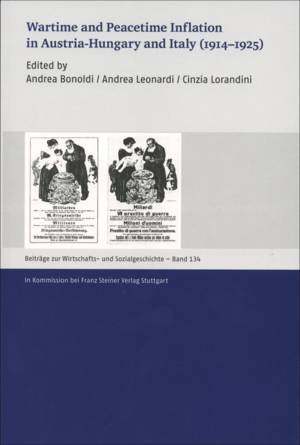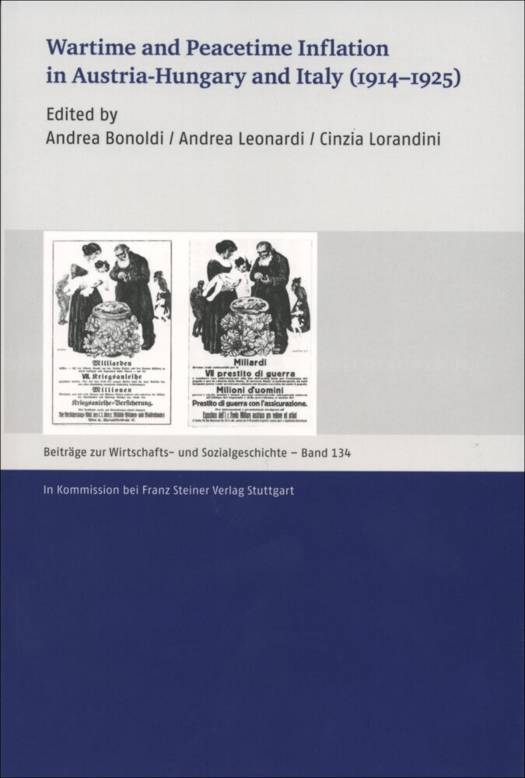
- Afhalen na 1 uur in een winkel met voorraad
- Gratis thuislevering in België vanaf € 30
- Ruim aanbod met 7 miljoen producten
- Afhalen na 1 uur in een winkel met voorraad
- Gratis thuislevering in België vanaf € 30
- Ruim aanbod met 7 miljoen producten
Zoeken
Wartime and Peacetime Inflation in Austria-Hungary and Italy (1914-1925)
€ 106,95
+ 213 punten
Omschrijving
All the countries that took part in the First World War had to deal with more or less intense inflation. There were many underlying causes of this phenomenon: expansion of the money supply because of a need to finance a rapid growth in public spending; intense exploitation of production factors connected with the war economy; problems of production and transportation; and turmoil on the international commodity and capital markets. This had major consequences for the distribution of wealth, for investments and for growth, as well as repercussions on the political sphere. Of all the countries involved, two direct opponents - Austria-Hungary and successor states and the Kingdom of Italy - both during and after the conflict, had particularly severe effects of high inflation. The essays collected in this volume aim to describe and explain, in a comparative perspective, the inflationary dynamics in the two states, focusing also on the political and social effects of the phenomenon and on the measures put in place to contain it. In this way, certain points emerge that contribute to enriching the interpretative framework on the course of the conflict and on the difficulties of the post-war period, highlighting the role played by politicians, bankers, entrepreneurs and economists.
Specificaties
Betrokkenen
- Uitgeverij:
Inhoud
- Aantal bladzijden:
- 163
- Taal:
- Engels
- Reeks:
- Reeksnummer:
- nr. 134
Eigenschappen
- Productcode (EAN):
- 9783515124546
- Verschijningsdatum:
- 21/11/2019
- Uitvoering:
- Paperback
- Formaat:
- Trade paperback (VS)
- Afmetingen:
- 157 mm x 234 mm
- Gewicht:
- 376 g

Alleen bij Standaard Boekhandel
+ 213 punten op je klantenkaart van Standaard Boekhandel
Beoordelingen
We publiceren alleen reviews die voldoen aan de voorwaarden voor reviews. Bekijk onze voorwaarden voor reviews.






